For years, in Adolf's cold eyes, no one saw the prophecy of the crematorium furnaces. Can a "peace painter" become a mad murderer of nations? Many have deluded it was impossible. But not Poles! We bit Hitler much earlier than the rest of the world.
No, Schicklgruber (Hitler's grandmother's name - author's note) , you will not win, even if you scream your soul out of your body. You want to control Germany? Have you made up your mind to be a dictator - with a nose like that? Laughter takes me. Why, you will never come to power! - Klaus Mann on Hitler, 1932.
This quote perfectly illustrates how much Adolf Hitler's political abilities were underestimated. Besides, Klaus Mann was not alone in his opinion. Rat-catcher, peace painter, Mongolian stray, guy with a beer organ, pathetically misfortune calf, eye-catching mediocrity, utter lack of talent - these are just some of the epithets with which Hitler was defined.
Over time their authors, such as Carl von Ossietzky, saw for themselves what an Austrian they despised could be capable of. The more recognition is due to all those who saw in Hitler as something more than just the postal minister who - as stated by the president of the Weimar Republic, Paul von Hindenburg - can lick his stamps .
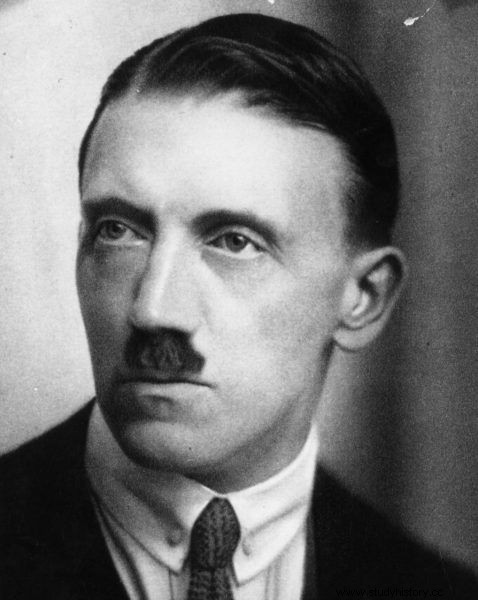
Who could have guessed that this "pathetic, misfit calf" would become the terror of Europe? At the time of taking this photo (1920), probably not many… (source:public domain).
Fear has blue eyes
Perhaps the sources of this contemptuous tone should be sought in the physiognomy of Hitler himself. Indeed, it is hard to believe that a man of such an unremarkable stature with his hair combed over his forehead and a mustache trimmed with geometric precision, he could become a tribune of the people and the emperor of the lord race .
In this walking caricature policy the only element that really impressed the interlocutor were the eyes. August Kubizek, Hitler's friend from his teenage years, recalls his mother's comment: ... on the evening before going to bed, she said to me:"But this friend of yours has eyes!" And I remember very well that there was more fear than admiration in her words .
It is rather difficult to find prophecies of crematorium ovens here, but it is one of the first opinions that Hitler is taken seriously and not with indulgence.
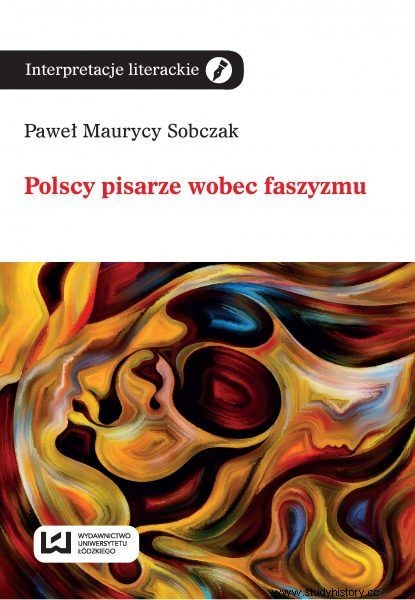
He would probably still lead a life of an unfulfilled artist, earning a living by selling his own pictures if he had not discovered an extraordinary oratorical talent. His stormy speeches, in which the word "Jew" was spewed out in all cases, gathered more and more crowds of followers.
And his ability to manipulate listeners they were so large that even the director of the prison to which Hitler ended up after the unsuccessful Munich coup in 1923 spoke about him in superlatives. I do not think we are fully aware of the power of Nazi sermons, since even Jews were willing to join the NSDAP ...
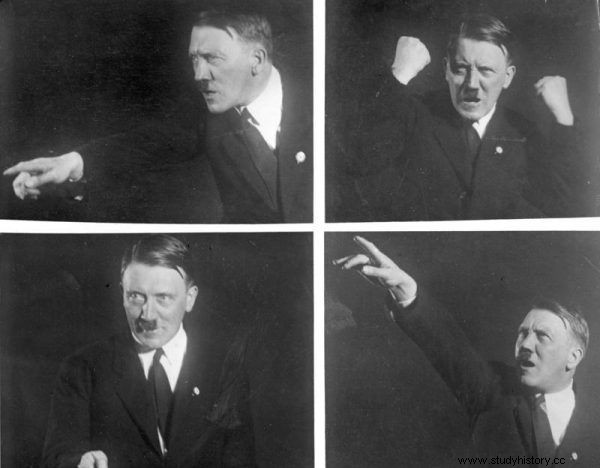
Unfortunately, Hitler turned out to be a great speaker, whose gestures and words captured the crowds ... In the photos, Adolf practicing poses for his speeches, 1927 (source:Bundesarchiv, license:CC BY-SA 3.0 de).
The specter of war is haunting Europe
Of course, there was a lot of interest in the events of our western neighbors in the Polish backyard. Among the writers who were the first to see the danger from the Nazis was the author of the Polish translation of "Adventures of the Good Soldier Szwejk", Paweł Hulka-Laskowski . In 1933 he wrote in "Wiadomości Literackie":
Germany is a country that in its history has not managed to establish state and national borders (...) . Meanwhile, the German eyes look around and look for what, where and to whom to be torn out. It is, in the words of Curtius, "an escape from culture." Escape to war.
This article has more than one page. Please select another one below to continue reading.Attention! You are not on the first page of the article. If you want to read from the beginning click here.
Even earlier, in 1932, Jerzy Braun - an outstanding political activist and writer, whose song "The fire is burning, the wood is rustling" has become the starter pack of every music teacher in elementary school, he noticed with great acuteness that behind the swastika is the mask of the skeleton of war .
Słonimski into Hitler
One of Hitler's fiercest enemies was Antoni Słonimski. This unrivaled master of a sharp retort in "Weekly Chronicles", which appeared in the rather niche "Wiadomości Literackie", dealt with political opponents with the help of colorful language and an excellent sense of humor.
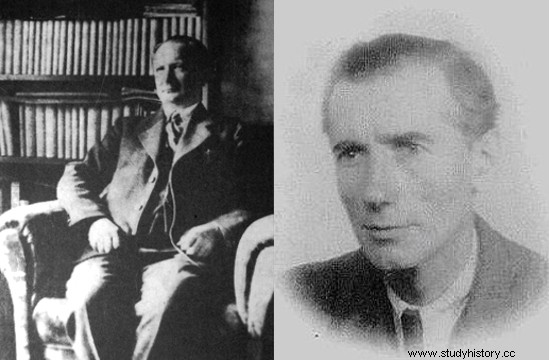
Paweł Hulka-Laskowski (left) and Jerzy Braun (right) were the only one of the few who saw Hitler as a threat in the early 1930s.
However, as Paweł Maurycy Sobczak notes in the book "Polish writers against fascism" , Słonimski's journalism, along with subsequent reports of Nazi crimes , took on a more serious tone. Out of the mass of texts published in the "Chronicles of the Week", the words from 1935 sound exceptionally threatening:
It is hard to imagine that the Nazi masquerade could end up with a simple house rift. The human masses, ambitious, watered down by hatred, must finally unload their dynamics. And then again when anti-Semitism and increasingly vague phrases are not enough, only one thing will remain:to exploit fanaticism, discipline and hatred . After economic failures, to look for happiness in the gambling of war .
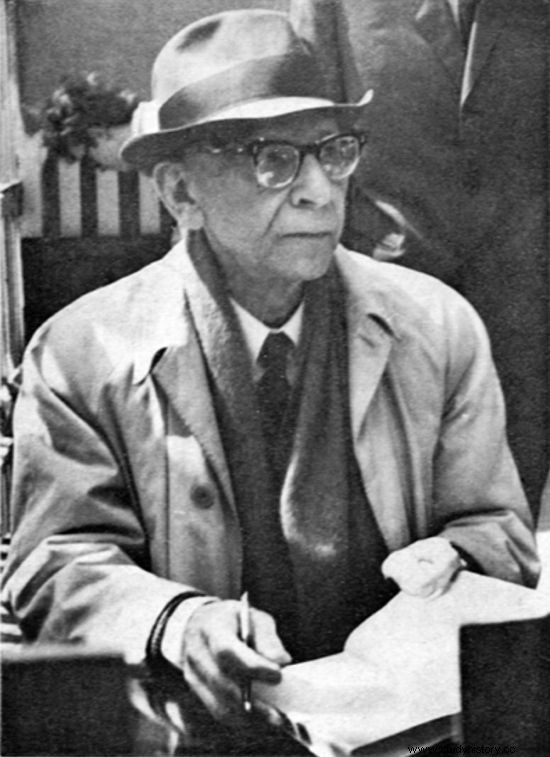
"It is hard to imagine that the Nazi masquerade could end with a simple house-splitting" - wrote Antoni Słonimski (source:public domain).
It is amazing how correct the writer's opinion turned out to be. The more that today we can also find people who say that the economic policy of Germany was a great economic success.
The Nazis were bad but had a nice logo
While some of the swastikas were terrifying, for Count Antoni Sobański the Nazi flag was in terms of color, almost perfect . But it was not only his aesthetic preferences that influenced his rather ambiguous attitude towards Nazi Germany.
In the collection of reports "Civilian in Berlin" (1934), Sobański presents the changes that took place in German society after Hitler came to power. However, in describing even such scandalous events as the public burning of books, the author snobs on objectivity which some could not forgive him.
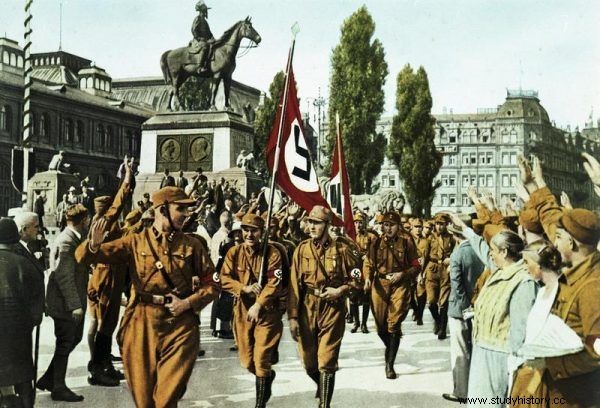
Count Antoni Sobański liked the colors of the Nazi flag. In the photo Nuremberg, 1929 (source:Bundesarchiv, license:CC BY-SA 3.0 de).
But it would be very unfair to underestimate the passages in his book that were a clear warning of impending catastrophe. As Sobański points out, dressed in uniforms German society was a nation destined for war who wants to free himself from the Powersala slavery and gain a huge piece of land .
Perhaps Sobański's warnings did not resound strongly enough, as they blurred in the less accusatory (objective?) parts of his book. Paweł M. Sobczak points to one more reason. This cosmopolitan, who speaks six languages and feels at ease in European capitals, hardly accepted that his idealized Germany was departing into the abyss of primitive ideology .
This article has more than one page. Please select another one below to continue reading.Attention! You are not on the first page of the article. If you want to read from the beginning click here.
As we read in "Polish writers against fascism": Sobański was not intellectually - but also mentally prepared - to realize that the totalitarian threat comes from the West, from close Germany. Therefore, his accurate diagnosis does not make it through the remaining, more moderate, description of the Nazi state.
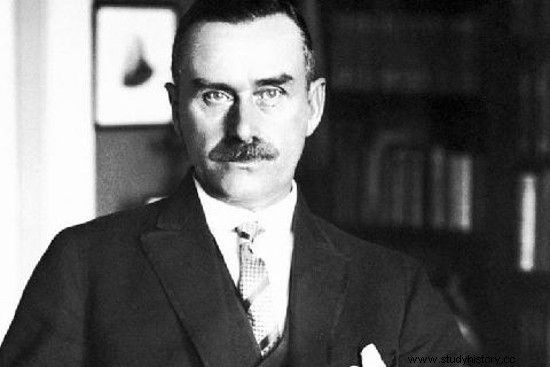
The author of "The Magic Mountain" noticed the intellectual vulgarity of the Nazi ideology and the barbarity that its implementation would bring. But nobody listened to him (source:public domain).
The hardest thing to be a prophet in your own country
Hitler's growing popularity also caused anxiety among German writers. One of his greatest opponents was Tomasz Mann, who, after the first significant success of the NSDAP, gave his "Appeal to Reason" in October 1930. He showed a better sense in assessing Hitler than his son mentioned at the beginning.
Contrary to the hoots gathered in the Berlin Auditorium Beethoven enthusiasts of the screaming Austrian, Mann loudly criticized the anti-intellectuality of the Nazi movement pointing to his barbarity and market-oriented style of politics. No wonder that after Hitler came to power, he did not intend to return to his country. After all, it is possible that he could share the fate of his books, burned with such verve by the crazy youth group of the NSDAP.

The early critics of the still lopsided march of the Nazis also included playwright Ernst Toller . Certainly, his communist tendencies allowed him to sharpen his senses and to show greater vigilance towards his natural enemy. As early as 1930, he wrote for the weekly "Weltbühne" that after Hitler seized power, he would reign sheer brutal terror directed against socialists, communists, pacifists and a few remaining democrats .
At that time, other supporters of the broadly understood German left were claiming that the Nazi party - even if it won power - would not enjoy it for a long time. Another question is what the communists themselves would do with their political opponents if they had managed to engage Germany in the modes of a proletarian revolution.
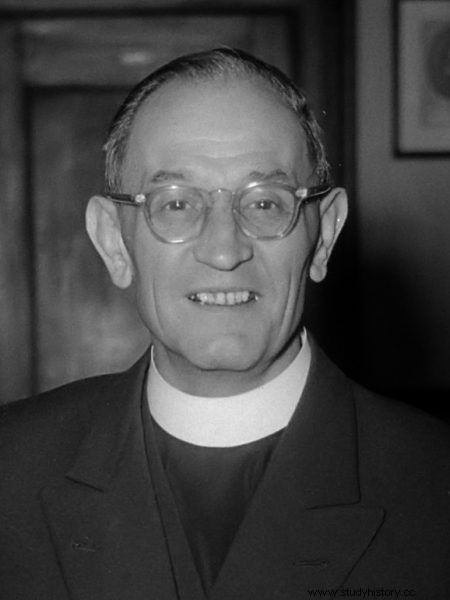
Pastor Martin Niemöller. It was his poem, written in Dachau, that became a symbol of passivity in the face of the madness of Nazism (author:J.D. Noske, license:CC BY-SA 3.0 nl).
How difficult it is to be a prophet in your own country was best proved by a poem written by Pastor Martin Nemöller, imprisoned in Dachau: When they came for the Jews, I did not protest. After all, I was not a Jew . (…) When they came for me, nobody protested. Nobody was there anymore.
This work became a symbol of passivity not only of the Germans themselves, but also of the entire European elite in the face of the increasingly aggressive actions of Hitler and his gang. All the more, let us remember about those who showed farsightedness in their assessment.
Bibliography:
- Anthology of Polish reportage of the 20th century , edited by M. Szczygła, vol. 1, Wołowiec 2014.
- Churchill W.S., World War II , vol. 1, rev. 1, trans. K.F. Rudolf, Gdańsk 1994.
- Nagorski A., Hitlerand. How the Nazis Seized Power , trans. K. Bażyńska-Chojnacka and P. Chojnacki, Poznań 2013.
- Słonimski A., Weekly Chronicles 1932-1935 , pre-words and footnote R. Habielski, Warsaw 2001.
- Sobczak P.M., Polish writers towards fascism , Łódź 2015.
- Urlich V., Hitler. The Birth of Evil 1889–1939 , trans. M. Antkowiak, Warsaw 2015.
